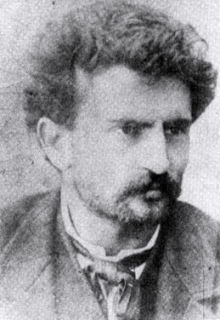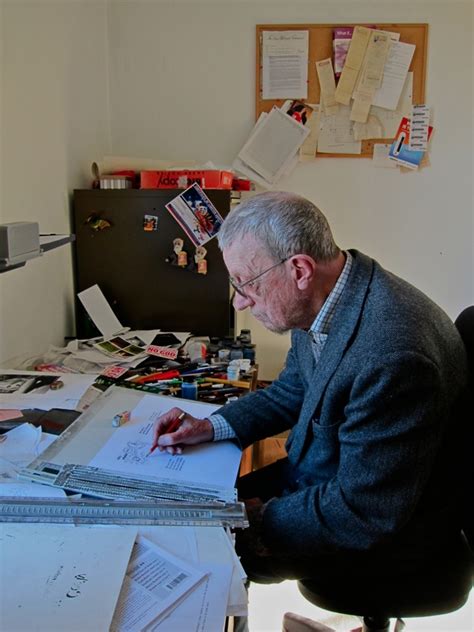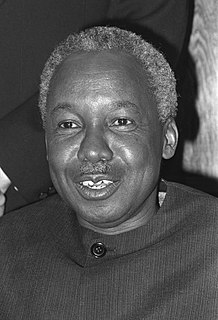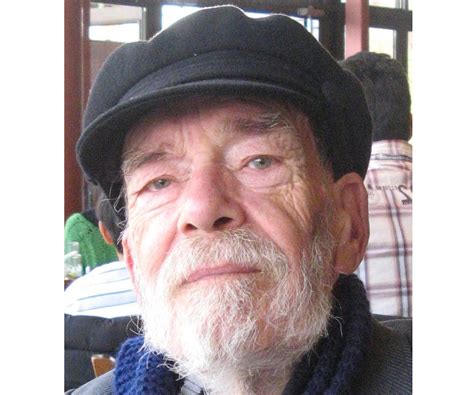A Quote by Errico Malatesta
Anarchists are opposed to violence; everyone knows that. The main plank of anarchism is the removal of violence from human relations. It is life based on freedom of the individual, without the intervention of the gendarme. For this reason we are the enemies of capitalism which depends on the protection of the gendarme to oblige workers to allow themselves to be exploited--or even to remain idle and go hungry when it is not in the interest of the bosses to exploit them. We are therefore enemies of the State which is the coercive violent organization of society.
Quote Topics
Allow
Anarchism
Based
Bosses
Capitalism
Depends
Enemies
Even
Everyone
Exploit
Exploited
Freedom
Go
Human
Human Relations
Hungry
Idle
Individual
Interest
Intervention
Knows
Life
Main
Opposed
Organization
Plank
Protection
Reason
Relations
Remain
Removal
Society
State
Them
Themselves
Therefore
Violence
Violent
Which
Without
Workers
Related Quotes
Anarchism as the name for an ideal total social form is a really complicated question. I have never found satisfying answers from anarchists about the definition of the state they are opposed to. Most are opposed to coercive forms of state power. Questions about large scale systems of organization and how they will be funded - those are questions it's hard to get anarchists to give good answers to.
Anarchism is opposed to states, armies, slavery, the wages system, the landlord system, prisons, monopoly capitalism, oligopoly capitalism, state capitalism, bureaucracy, meritocracy, theocracy, revolutionary governments, patriarchy, matriarchy, monarchy, oligarchy, protection rackets, intimidation by gangsters, and every other kind of coercive institution. In other words, anarchism opposes government in all its forms.
Free societies, which allow differences to speak and be heard, and live by intermarriage, commerce, and free migration, and democratic societies, which convert enemies into adversaries and reconcile differences without resort to violence, are societies in which the genocidal temptation is unlikely and even inconceivable.
Anarchism is a definite intellectual current in the life of our times, whose adherents advocate the abolition of economic monopolies and of all political and social coercive institutions within society. In place of the present capitalistic economic order Anarchists would have a free association of all productive forces based upon co-operative labour, which would have as its sole purpose the satisfying of the necessary requirements of every member of society, and would no longer have in view the special interest of privileged minorities within the social union.
If you live in a society where those who govern society and determine its path do not respect freedom of speech and freedom of religion, freedom of choice, freedom of assembly, and if there is no democratic process and no way to change the order of things by reason and peace and love and so on, and if, as a result of that, certain ideas in which you believe are being crushed, then I think the only way you can defend yourself against this violence is in using violence of your own.
Possibly worst of all, from the standpoint of the dedicated enemies of freedom, the Internet is a world that libertarians - having been marginalized for three decades by the establishment media - have made their own, almost without effort. It's an alternative reality (unlike 'meat-space' we live in) in which - exactly like intelligence, bravery, or virtue - the human capacity for violence is not additive, and in which it's impossible to initiate force against anybody.
Briefly, the State is that organization in society which attempts to maintain a monopoly of the use of force and violence in a given territorial area; in particular, it is the only organization in society that obtains its revenue not by voluntary contribution or payment for services rendered but by coercion.
Having come into contact with a civilization which has over-emphasized the freedom of the individual, we are in fact faced with one of the big problems of Africa in the modern world. Our problem is just this: how to get the benefits of European society - benefits that have been brought about by an organization based upon the individual - and yet retain African's own structure of society in which the individual is a member of a kind of fellowship.
Legal systems, at both the national and international level, are therefore required to recognize, guarantee and protect religious freedom, which is a right intrinsically inherent in human nature, in man's dignity as a free being, and is also an indicator of a healthy democracy and cone of the main sources of the legitimacy of the State. Religious freedom ... favors the development of relationships of mutual respect between the different Confessions and their healthy collaboration with the State and political society, without confusion of roles and without antagonism.
We must realize that violence is not confined to physical violence. Fear is violence, caste discrimination is violence, exploitation of others, however subtle, is violence, segregation is violence, thinking ill of others and condemning others are violence. In order to reduce individual acts of physical violence, we must work to eliminate violence at all levels, mental, verbal, personal, and social, including violence to animals, plants, and all other forms of life.
Capitalism had arisen through the misuse and exaggeration of certain rights, notably the right of property - the basis of economic freedom - and the right of contract, which is one of the main functions of economic freedom. Therefore, even under Capitalism, so long as the old principles were remembered it was possible to recall the principles whereby Society had once been sane and well ordered.
Some people draw a comforting distinction between force and violence. I refuse to cloud the issue by such word-play. The power which establishes a state is violence; the power which maintains it is violence; the power which eventually overthrows it is violence. Call an elephant a rabbit only if it gives you comfort to feel that you are about to be trampled to death by a rabbit.
Despite the popular idea of anarchists as violent men, Anarchism is the one non-violent social philosophy.… The function of the Anarchist is two-fold. By daily courage in non-cooperation with the tyrannical forces of the State and the Church, he helps to tear down present society; the Anarchist by daily cooperation with his fellows in overcoming evil with good-will and solidarity builds toward the anarchistic commonwealth which is formed by voluntary action with the right of secession.






































